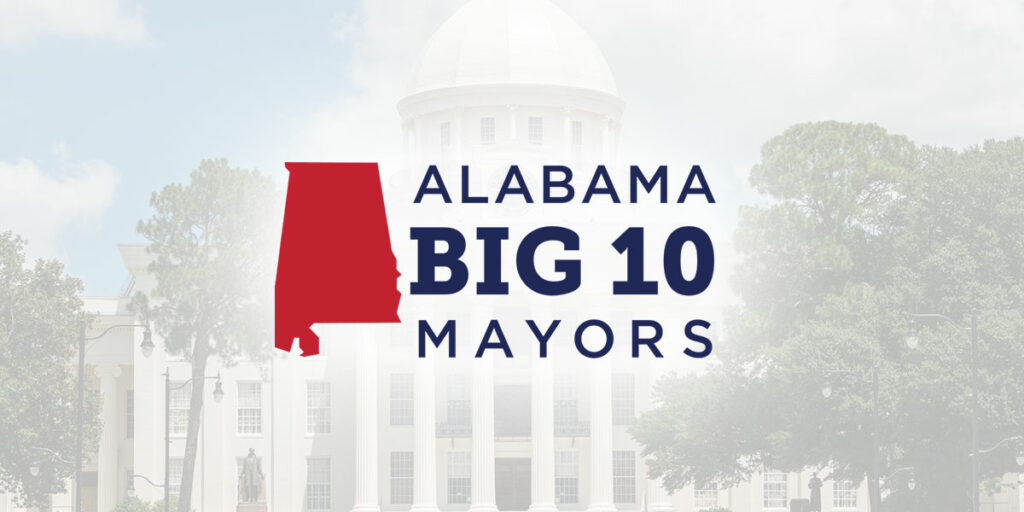As more details are coming to the forefront about 39-year-old Darrell Brooks, Jr., the suspect incident of an SUV being driven into a Waukesha, Wisc. Christmas parade that has resulted in at least six people dead, some are asking given Brooks’ criminal history, how was he not still in jail.
Brooks has been charged with five counts of first-degree intentional homicide and is now being held on $5 million bond but had been released on $1,000 bond for a domestic violence incident days earlier.
Long before the Waukesha incident, an effort has been underway in Alabama to keep those charged with violent crimes from being granted bond with their charges pending.
Earlier this year, State Rep. Chip Brown (R-Hollinger’s Island) led the passage of Aniah’s Law in the Alabama Legislature, which is now headed to a vote by the public on the November 2022 ballot.
Aniah’s Law would allow prosecutors and judges broader discretion in requesting and denying bail to those accused of committing violent crimes. According to Brown, had Aniah’s Law been in place in Wisconsin, Brooks may have still been in custody, and therefore incapable of committing the heinous act with which he has been charged.
“It could have kept him off the streets,” Brown said during an interview that aired on Mobile radio FM Talk 106.5’s “The Jeff Poor Show.” “You know, one of the problems they have in Milwaukee County is the district attorney up there is a George Soros district attorney. There’s several of them — one in St. Louis, one in L.A., San Francisco, these bigger cities, that radical left, you know, George Soros — they pumped money into those campaigns, and we saw it last year in 2020 with the riots. You know, they don’t hold people. They push for things like in New York where you have cashless bail, and you have people come in, and they get right back out on the street.”
“And so in Milwaukee County, you go back and look, the DA there — he grants bond, he grants bail to these people, and the bonds are always low — I mean, a $1,000 or lower for serious violent crimes,” he continued. “If a law like Aniah’s Law would have been in place there that could have held him without bond — what Aniah’s Law does is right now in Alabama, you can only hold someone technically if they are charged with capital murder. And this broadens the scope to violent Class A felonies, which would be your kidnapping, rape, violent domestic abuse as such as sexual torture, burglary, arson, robbery, terrorism, aggravated child abuse. And this individual in particular just a few days ago — he ran over his girlfriend at a gas station, and that’s violent domestic abuse right there. If you read the police report, when they went to the scene — he hit her, knocked her cell phone out, and then he got in his car, drove off, and he came back and ran over her. The police report states that she had tire tracks across her pants when he ran over her. But rather than holding this guy, they let him out on $1,000 bond, and, of course, he went and committed the horrific crime you saw on Sunday.”
Brown said should Aniah’s Law pass the vote next year, it would create a circumstance that would have given district attorneys the latitude to request bail be denied by a judge if such an individual poses a risk to the public.
“If Aniah’s Law passes in Alabama, what it would do in an instance like that because of the violent domestic abuse and because of his history — I mean this guy has a criminal record that dates back into the 90s, and it’s for a lot of violent crimes,” Brown explained. “I mean, he was charged with strangling someone and did 11 months in prison for that, has a history of domestic violence. He had actually been a convicted sex offender in Nevada and actually still has a warrant in Nevada from 2016. But what it would do in Alabama — if someone came before a court in Alabama, the district attorney could look at that and say, ‘Hey, we need to keep this guy off the street. He’s shown he’s a violent offender. He’s going to repeat again.’”
“If you go to a judge and request an evidentiary hearing to show evidence to show probable cause to shy he’s an imminent threat to the community, himself or is a flight risk and can request to be held without bond, have a little short hearing, and the judge makes a ruling,” he continued. “He either grants bond or denies bond. What that does is it allows that defendant to still have his due process and not violate his Eighth Amendment rights to the Constitution. But at the same time, it allows situations like in Mobile, where we have 130 people that are charged with murder walking the street. It would prevent things like that.”
“It would keep violent criminals off the street, and, of course, it was named after Aniah Blanchard, who the individual who was charged with that crime was out for an attempted murder, kidnapping and robbery of a 77-year-old man but yet he was allowed to get out on bond,” Brown added. “That’s not right. That’s now what we need. We need to work to keep our people safe and keep dangerous predators behind bars.”
@Jeff_Poor is a graduate of Auburn University and the University of South Alabama, the editor of Breitbart TV, a columnist for Mobile’s Lagniappe Weekly, and host of Mobile’s “The Jeff Poor Show” from 9 a.m.-12 p.m. on FM Talk 106.5.











